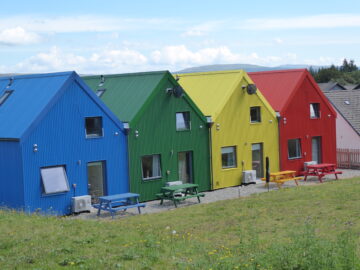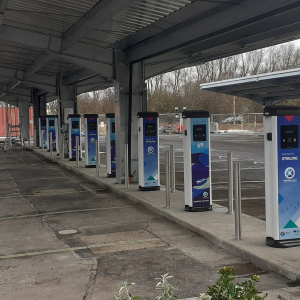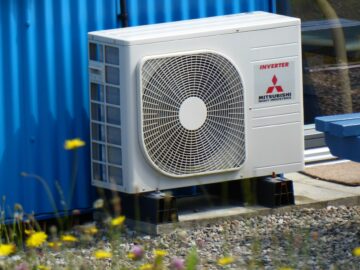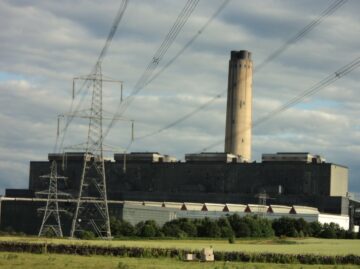
Ban, legislate, regulate, cajole…which is the best option to tackle the climate emergency? We need bold action to tackle our climate crisis. In this blog I outline some examples of ‘mandates’ imposed on industry to transform the products they sell to us.
To reduce emissions quickly we need to think big, bold and be sensible. One method is for government or a regulator to impose ‘mandates’ on industry to achieve a set target of sales by a particular date, with the target increasing over time. Relevant companies must meet the mandate themselves, pay others to act on their behalf or face the threat of fines. The advantage is that the target or outcome will be achieved, often at lowest cost. The industry affected usually fights such mandates tooth and nail as it passes extra bureaucracy and cost onto them. These costs are usually transferred to the consumer. Once bedded down, industry just ‘gets on with their job.’
Electric Vehicles
Electric vehicles (EV’s) are the future. They are inherently more energy efficient, can be powered from renewable energy, are quieter, and eliminate local air pollution. The UK Government has promised to ban the sale of petrol and diesel cars from 2035, but how best to go about this? They could ramp up the tax on petrol and diesel (unpopular), adopt a scrappage scheme for old vehicles (expensive), subsidise new EV’s (very expensive) or simply impose a ban. But what if the car manufacturers do not act in time and there is a shortage of new cars for sale? What if there are not enough charge points, or enough electricity in the right places? It could be a recipe for chaos. A smooth and planned transition is better for everyone.
The UK Government is consulting over an EV Mandate. Car manufacturers will have to sell a minimum of 22% EV’s by 2024, rising each year to 80% by 2030 and 100% by 2035. Manufacturers will be allocated free allowances, then will buy any deficit, or sell any surplus to other manufacturers. This steady increase in sales will provide the certainty needed for manufacturers, supply chain and charge point operators to invest in the future.
This is a plan that should work. Is it bold and ambitious? Not so bold – the proposed 2024 target has already been achieved! In my view the end point should be brought forward to 2030 to accelerate this change.
Heat Pumps
The switch from gas to heat pumps (and heat networks) is going to be more difficult than the switch to EV’s. The public is wedded to burning gas in their homes even although heat pumps are more efficient and far less polluting. My own experience, part-funded by a grant, is that heat pumps are a great solution.
The UK Government has a target of 600,000 heat pumps each year by 2028. The proposed ban on installing gas into new houses will help but will not be sufficient, whilst persuading existing householders to change is going to be difficult. Subsidies would be very expensive and an outright ban on replacing existing gas boilers could be very unpopular.
The UK Government is proposing a Clean Heat Mechanism. This will create a market incentive for industry to install heat pumps to existing properties. It will provide industry with a clear, long-term policy to invest in growing the heat pump market. The proposed obligation is on the manufacturers of gas and oil heating appliances to install 60,000 heat pumps (4% of their sales) in 2024/25 rising to 400,000 by 2029/30 in properties currently heated by fossil fuels. Again, a trading scheme will be set up to buy deficit or sell surplus allowances.
Interestingly, the Energy and Utilities Alliance (EUA) said that the proposed Clean Heat Market Mechanism is “absurd” and a “Soviet-style production quota.” Industry often opposes the introduction of such mandates!
Now, this is a bold plan. There may be many technical difficulties, but it does seem like a plan that could deliver the required outcomes and allow the industry to invest based on certainly of future demand. It should also lower costs as the manufacturers and installers scale up and learn from experience. Incidentally, another important action needed to support heat pumps is to transfer existing taxes on (low carbon) electricity to (high carbon) gas.
Vehicles
The EU Biofuel directive (2003) stipulated that all EU countries should act to increase the use of biofuels in transport. In response, the UK introduced the Renewable Transport Fuel Obligation. Fuel suppliers must supply a proportion of biofuels, currently set at 5%. The original plan was to increase this proportion each year, but this has been abandoned due to environmental and social issues – concern that new palm oil plantations were destroying the rainforest, then the realisation that using farmland to grow biofuel for transport had the effect of increasing food prices. Consequently, the EU introduced sustainability criteria for the supply of biofuels and has watered down the proposed 10% target for 2020.
Given the rapid shift to EVs across the EU, this is one mandate that should not be increased. Land used to grow biofuels could be used for more beneficial purposes such as growing food or restoring nature.
Aviation
Decarbonising aviation is one of the hardest areas to tackle. Electric planes are in their infancy and will only ever service short-haul flights. Alternative fuels such as hydrogen are years from widespread market. One suggestion is to impose a mandate on airlines to purchase an ever-increasing proportion of ‘sustainable aviation fuel’(SAF).
The UK Government plans to introduce such a mandate from 2025, potentially setting a target of 10% SAF by 2030.
To avoid unwelcome competition with growing food, fuel would have to be sourced from “low carbon feedstocks.” SAF can be made from municipal solid waste, from unrecyclable plastic or from waste industrial gases. It is likely that innovation will lead to new sources such as synthetic fuel made from renewable electricity. All these fuels can be blended with conventional jet fuel.
The Government consultation suggests that SAF can reduce lifecycle emissions by over 70%. Given that aviation causes additional climate impacts (eg warming from contrails) it can be seen that zero emission aviation is going to be difficult. We also need to be bolder. For example, the French Government has introduced a ban on short-haul flights less than 2.5 hours (watered down from the proposed 4 hours) using the argument that it is just as quick to travel by train.
Conclusion
Mandates are not the only answer, but they can be an effective mechanism to reach targets and they provide more certainly for all concerned. The main thing is to get the technical detail correct by consulting with industry. To minimise any adverse side effects the rules should be kept under review.
When did your community or pressure group last lobby the government to introduce, toughen or enforce existing mandates? Food for thought.
If you like this blog, please share it with your friends and on social media.
Carbon Choices
Don’t miss my future blogs! Please email me at This email address is being protected from spambots. You need JavaScript enabled to view it. and I will send you each new blog as I publish them.
You might also enjoy my book, Carbon Choices on the common-sense solutions to our climate and nature crises. Available from Amazon or a signed copy direct from me. I am donating one third of profits to rewilding projects.
Follow me:
@carbonchoicesuk (twitter) @carbonchoices (Facebook) @carbonchoices (Instagram)
- SEO Powered Content & PR Distribution. Get Amplified Today.
- EVM Finance. Unified Interface for Decentralized Finance. Access Here.
- Quantum Media Group. IR/PR Amplified. Access Here.
- PlatoAiStream. Web3 Data Intelligence. Knowledge Amplified. Access Here.
- Source: http://www.carbonchoices.uk/index.php/blog/blog-46
- :has
- :is
- :not
- $UP
- 000
- 2020
- 2024
- 2025
- 2028
- 2030
- 60
- a
- About
- accelerate
- Achieve
- achieved
- across
- Act
- Action
- Additional
- address
- adopt
- ADvantage
- adverse
- again
- AIR
- Air pollution
- Airlines
- All
- Alliance
- allocated
- allow
- already
- also
- alternative
- Although
- am
- Amazon
- ambitious
- an
- and
- Another
- answer
- any
- appliances
- ARE
- areas
- argument
- AS
- At
- available
- aviation
- avoid
- Ban
- based
- BE
- been
- behalf
- being
- beneficial
- BEST
- Better
- Big
- Blog
- bold
- book
- brought
- bureaucracy
- burning
- but
- buy
- by
- CAN
- car
- carbon
- cars
- causes
- certainly
- certainty
- chain
- change
- Chaos
- charge
- choices
- clear
- Climate
- climate crisis
- CO
- community
- Companies
- competition
- Concern
- concerned
- Consequently
- consultation
- consulting
- consumer
- conventional
- correct
- Cost
- Costs
- could
- countries
- create
- crisis
- criteria
- Currently
- Date
- DEFICIT
- deliver
- Demand
- detail
- DID
- diesel
- difficult
- difficulties
- do
- does
- donating
- down
- due
- each
- effect
- Effective
- effects
- efficient
- Electric
- electricity
- eliminate
- emergency
- emission
- Emissions
- enabled
- end
- energy
- enforce
- enjoy
- enough
- environmental
- EU
- EV
- Even
- EVER
- ever-increasing
- everyone
- example
- examples
- existing
- expensive
- experience
- extra
- Face
- far
- farmland
- fights
- fines
- Flights
- food
- Food for thought
- For
- Forward
- fossil
- fossil fuels
- Free
- French
- friends
- from
- Fuel
- fuels
- future
- GAS
- get
- given
- Go
- going
- Government
- grant
- great
- Group
- Grow
- Growing
- had
- Have
- help
- High
- Homes
- HOURS
- houses
- How
- http
- HTTPS
- hydrogen
- i
- if
- Impacts
- important
- impose
- imposed
- in
- Incentive
- Increase
- increased
- increasing
- industrial
- industry
- inherently
- Innovation
- install
- installing
- into
- introduce
- introduced
- Introduction
- Invest
- issues
- IT
- JavaScript
- Job
- jpg
- just
- kept
- Land
- Last
- lead
- LEARN
- less
- lifecycle
- like
- likely
- Lobby
- local
- long-term
- Low
- lowest
- made
- Main
- mandate
- mandates
- Manufacturers
- many
- Market
- May..
- mechanism
- Media
- Meet
- method
- might
- minimise
- minimum
- more
- more efficient
- municipal
- must
- my
- Nature
- Need
- needed
- networks
- New
- obligation
- of
- often
- Oil
- Old
- on
- once
- ONE
- only
- operators
- Option
- or
- original
- Other
- Others
- our
- Outcome
- outcomes
- outline
- over
- palm
- particular
- passes
- Pay
- Places
- plan
- Planes
- planned
- plans
- plastic
- plato
- Plato Data Intelligence
- PlatoData
- please
- Point
- points
- policy
- Pollution
- potentially
- powered
- pressure
- Prices
- Production
- Products
- profits
- projects
- promised
- properties
- proportion
- proposed
- protected
- provide
- public
- publish
- pump
- pumps
- purchase
- purposes
- Quick
- quickly
- Ramp
- rapid
- reach
- recipe
- reduce
- Regulate
- regulator
- relevant
- Renewable
- renewable energy
- required
- response
- restoring
- review
- right
- Right Places
- rising
- rules
- Said
- sale
- sales
- Scale
- scheme
- seem
- seen
- sell
- send
- service
- set
- setting
- Share
- shift
- shortage
- should
- side
- signed
- simply
- smooth
- So
- Social
- social issues
- social media
- solid
- solution
- Solutions
- some
- sourced
- Sources
- steady
- such
- sufficient
- Suggests
- suppliers
- supply
- supply chain
- support
- surplus
- Sustainability
- Switch
- synthetic
- tackle
- Target
- targets
- tax
- Taxes
- Technical
- than
- that
- The
- The Future
- the UK
- their
- Them
- themselves
- then
- There.
- These
- they
- thing
- Think
- Third
- this
- thought
- threat
- time
- to
- Trading
- Train
- transfer
- transferred
- Transform
- transition
- transport
- travel
- Uk
- UK government
- under
- us
- use
- used
- using
- usually
- utilities
- Vehicles
- very
- View
- was
- Waste
- we
- were
- What
- Whilst
- widespread
- will
- with
- Work
- would
- year
- years
- you
- Your
- zephyrnet
- zero












